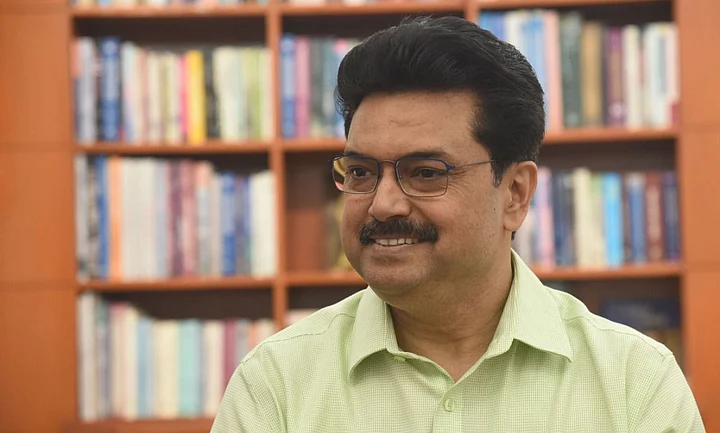In the last three years, Delhi University (DU) has witnessed a myriad of changes – starting with the shift from offline to online classes and then back, to the recent implementation of the Common University Entrance Test (CUET), which is rewriting the existing admission procedure.
In conversation with The Quint, the DU Vice-Chancellor (VC) Yogesh Singh speaks about DU's return to normalcy and the common entrance test.
The admission calendar had already been set back by the pandemic. And now, it has been delayed by CUET. What will the coming academic calendar look like?
I won’t say CUET is a setback. It is one of the largest examinations in the world – with so many permutations and combinations. Despite all its shortcomings, we should congratulate the National Testing Agency (NTA) and the Government of India for taking this bold step to improve the quality of education. Next year, things can be better.
We will start with the counselling very soon. We intend to finish most of the admissions in the month of October and start classes by 15-20 October.
Yes, our semesters had been delayed because of the pandemic, but now second and third-year classes have started.
Now the matter is pertaining to the first-year students. We will be able to minimise this too by next year. We will give fewer vacations and try to start early.
What are some of the pros of a common entrance test, and how will it change the landscape?
India is a very large country, with state boards and central boards, out of which some mark more leniently than others. So students are measured on different parameters. When we are admitting students, students from some state boards are at a disadvantage. In order to give everyone an equal platform, this is the way forward.
Every year, we used to see sky-high cutoffs. What can we expect when admissions begin this year?
It will not be the same this year because we do not have the same metrics. Students will be asked to give their preferences. Suppose you want to take admission in BA Mathematics (Hons) in Miranda House, that is your first preference. Say your second preference is Hindu College and your third may be Lady Shri Ram College. As per the new process, you will be given the best possible choice and if you are satisfied with that, we freeze it. If not, you will be given the next best option. The seat will remain but you will also be considered for your next option.
It is a very student-centric system. And it will give an equal and transparent opportunity to all students.
How will a student’s score be calculated?
It is similar to the old system. Suppose for Mathematics (Hons), we will look at the student's performance in Physics, Chemistry, Maths, and one language, as we used to do earlier. Under the new system too, NTA will give marks in all of the required subjects, we will add those, and then a relative percentile will be given.
Can you tell us a bit about how DU has been impacted by the pandemic in the last two years?
We were all in a very difficult situation because of the pandemic. But at least with the help of technology, we could save one or two years. Our students are quite tech-savvy. They took advantage of technology to study online and then appear for the examinations. When something similar happened in history – say the 1918-1920 influenza pandemic, many students lost one or two years.
Overcoming this is an achievement by universities, teachers, and students who adapted themselves very easily. Otherwise, taking classes online, attending classes online, and submitting assignments online was an entirely new phenomenon. But we could do it.
DU has always been a hotbed of political activity. Because students were not on campus, have student politics receded into the background too?
Not really, they are back on campus now and everything is taking some time but things will soon get back to normal. After the first-year admissions, we will have discussions with our student associations about how to proceed further. We are very open. The university is for the students and their welfare is the only concern of any vice-chancellor.
(At The Quint, we question everything. Play an active role in shaping our journalism by becoming a member today.)
